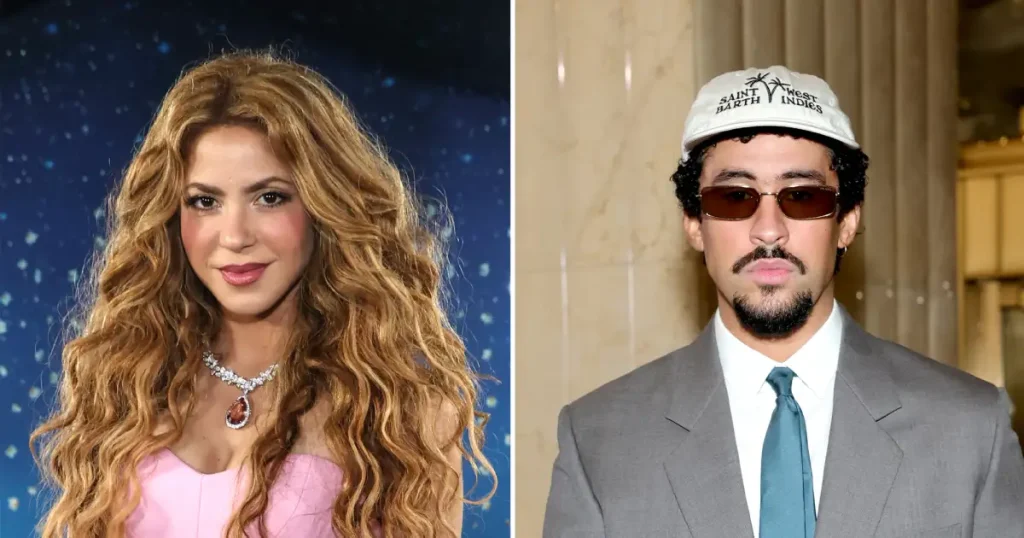Shakira Champions Bad Bunny’s Super Bowl Halftime Selection Amid Mixed Reactions
Shakira has enthusiastically endorsed Bad Bunny as the upcoming Super Bowl LX halftime show headliner, declaring “It’s about time!” in a recent Variety interview. The Colombian superstar reflected on her own 2020 Super Bowl performance with Jennifer Lopez, noting how even including Spanish-language segments in their show was considered bold at the time. Shakira believes the music industry has evolved significantly since her early career, when her Spanish-language music often faced resistance from English-speaking audiences before gaining wider acceptance. Her perspective highlights the cultural shift that has paved the way for artists like Bad Bunny to command the world’s biggest stage. The endorsement comes with personal significance, as Bad Bunny previously joined Shakira during her halftime performance to sing “Chantaje,” showcasing Spanish-language music to the massive global audience that tunes in for the Super Bowl.
“I’m so proud that Bad Bunny, who represents not only Latin culture but also how important Spanish language music has become on a global scale and how universal it has become, is getting to perform on the biggest stage in the world,” Shakira explained in her interview. Her comments celebrate not just Bad Bunny as an artist but what his selection represents for Latin music’s growing global influence. As someone who helped pioneer mainstream acceptance of Spanish-language music in the United States, Shakira views Bad Bunny’s upcoming performance as a natural progression in the industry’s evolution and a testament to how far Latin artists have come. She expressed genuine excitement about watching the show, scheduled for February 2026 at Levi’s Stadium in Santa Clara, California, seeing it as arriving at “the perfect moment” for such a performance.
Despite Shakira’s enthusiasm and Bad Bunny’s immense popularity, the NFL’s decision has sparked controversy in some circles. A Change.org petition calling for country singer George Strait to replace the Puerto Rican superstar as the halftime performer has gathered over 58,000 signatures. The backlash has extended to public figures, with former NASCAR driver Danica Patrick and even former President Donald Trump voicing criticism of the selection. This resistance highlights the ongoing cultural tensions surrounding Spanish-language entertainment at mainstream American events, even as Latin music continues to dominate global streaming charts and influence pop culture worldwide. The controversy demonstrates that despite significant progress, there remains resistance to fully embracing cultural diversity in major American entertainment showcases.
Bad Bunny hasn’t shied away from addressing the criticism, using his recent hosting gig on Saturday Night Live to respond with characteristic confidence and humor. During his monologue, he expressed excitement about performing at the Super Bowl and acknowledged his global fanbase’s support. Then, after briefly speaking in Spanish, he playfully challenged viewers who couldn’t understand him: “If you didn’t understand now what I just said, you have four months to learn!” This lighthearted yet pointed response encapsulates his approach to navigating cultural boundaries – inviting others to broaden their perspectives rather than limiting his authentic expression. His reaction suggests he intends to stay true to his artistic identity for the halftime show, regardless of criticism.
Jennifer Lopez has emerged as another powerful supporter of Bad Bunny’s selection, predicting during an appearance on Today that “he’s about to blow everybody’s mind.” Drawing from her own experience co-headlining the Super Bowl halftime show with Shakira, Lopez emphasized Bad Bunny’s ability to transcend language barriers through his music. She expressed surprise when learning about the backlash, questioning why anyone would object to “one of the top artists in the world right now, probably the top.” Her defense points to Bad Bunny’s commercial success and cultural impact as more than sufficient qualification for the role, regardless of the language he performs in. As someone who has navigated similar cultural spaces throughout her career, Lopez’s endorsement carries significant weight in validating Bad Bunny’s selection.
The contrasting reactions to Bad Bunny’s selection highlight America’s evolving relationship with multicultural entertainment and representation. On one side stand established Latin music pioneers like Shakira and Jennifer Lopez, who view his selection as a natural progression in the music industry’s growing inclusivity. On the other side are those who prefer more traditional American entertainment for the quintessentially American sporting event. What makes this moment particularly significant is that the NFL, a deeply American institution, has chosen to embrace a Spanish-language artist as its solo headliner, signaling recognition of the changing demographics and musical preferences of its audience. Whether viewers tune in to support or criticize, Bad Bunny’s performance will undoubtedly become a cultural touchstone in the ongoing conversation about representation in mainstream American entertainment. With the performance still months away, the discussion itself has already accomplished what halftime shows aim to do – generate conversation, create anticipation, and reflect the cultural moment.


